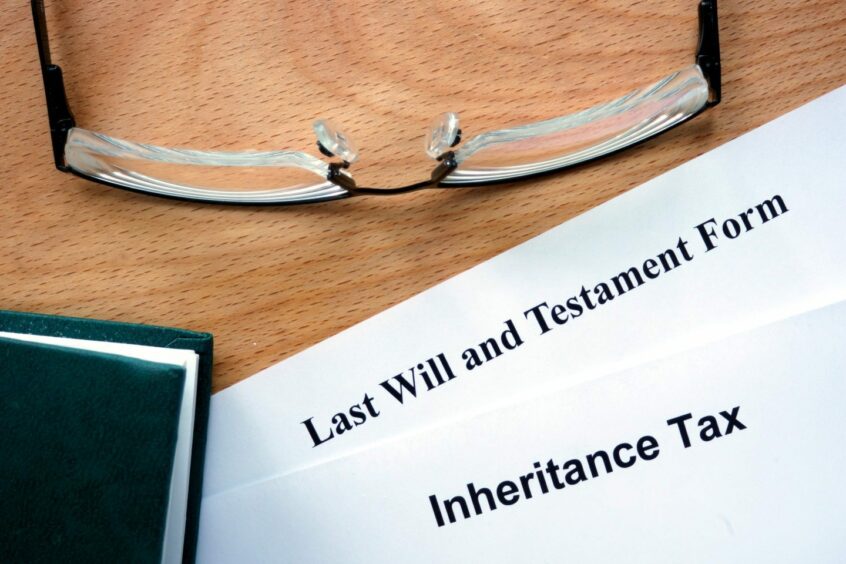The only things in life that are certain are death and taxes, or so they say.
And when these two issues coincide it can be a very complicated, if not costly matter.
One very important but little understood area of taxation is inheritance tax, or IHT.
Growth in property values and a subsequent rise in the value of estates means an increasing number of people are now potentially falling within its grasp.
Great care must be taken not to breach any annual or lifetime allowances.”
HM Revenue and Customs reported an increase of £4.8 billion in IHT receipts between April and November 2022.
IHT is complex, and without the appropriate planning it can be an expensive business.
It is vital, therefore, to both understand the tax and how you can mitigate any liability.
Private bank Brown Shipley recently revealed more than half (54%) of survey respondents had not spoken with loved ones about their inheritance tax plans.
And more than two-fifths (42%) had yet to make a will.
IHT is heavily punitive at 40% but there are important allowances in place that can ensure any tax liability can be reduced significantly, or even removed completely.
The current IHT threshold in the UK is £325,000, meaning estates worth up to this amount are not subject to the tax.
There is also a residence nil rate band of £175,000 on top of this, which means married couples can have about £1 million in their estates before they are taxed on them. The thresholds have been frozen until 2028.
So, how to plan for IHT?
Firstly, pensions can be an ideal way to quickly remove cash from any estate calculations.
You could contribute up to £40,000 per year to these, and even carry forward any unused allowances from the previous three tax years and pay in up to £160,000.
But great care must be taken not to breach any annual or lifetime allowances.
We launched an Inheritance Tax Checker which is a guidance tool and will confirm whether you need to fill in an IHT400 form, or if you can report the value of an estate on your probate application. You can find it here https://t.co/sqoVgKmXLH pic.twitter.com/yhFaIJ0WZ9
— HM Revenue & Customs (@HMRCgovuk) August 5, 2022
The use of trusts has become more common as a means of passing on assets in recent years.
This is because they allow people to retain an element of control after making their gifts.
Importantly, these gifts will be treated as such for up to seven years but they may fall back into the estate if you die within that time.
Niche investments
Niche investments which offer business property relief, such as Alternative Investment Market (Aim) portfolios are also an option.
They are not suitable for everyone and with Aim shares carrying more risk, it is definitely an area where professional advice is a must.
You can also make use of the annual gift allowance, which allows you to give up to £3,000 a year without incurring IHT.
Furthermore, you can make use of your annual exemption – which allows you to make gifts of £250 per person without them being subject to IHT.
Last but certainly not least, anything donated to a charity from your will reduces your estate immediately by that amount. And if you designate 10% or more of your estate to charity in your will, then any IHT that falls due on the remainder will be taxed at 36%, instead of 40%.
There are many considerations when it comes to IHT.
The best option is to get independent financial advice as early as possible if you want to make sure the assets and wealth you worked hard to build over your lifetime are, as far as possible, yours to pass on.
Russell Anderson is an independent financial adviser at Aberdeen-based law firm Aberdein Considine.



Conversation